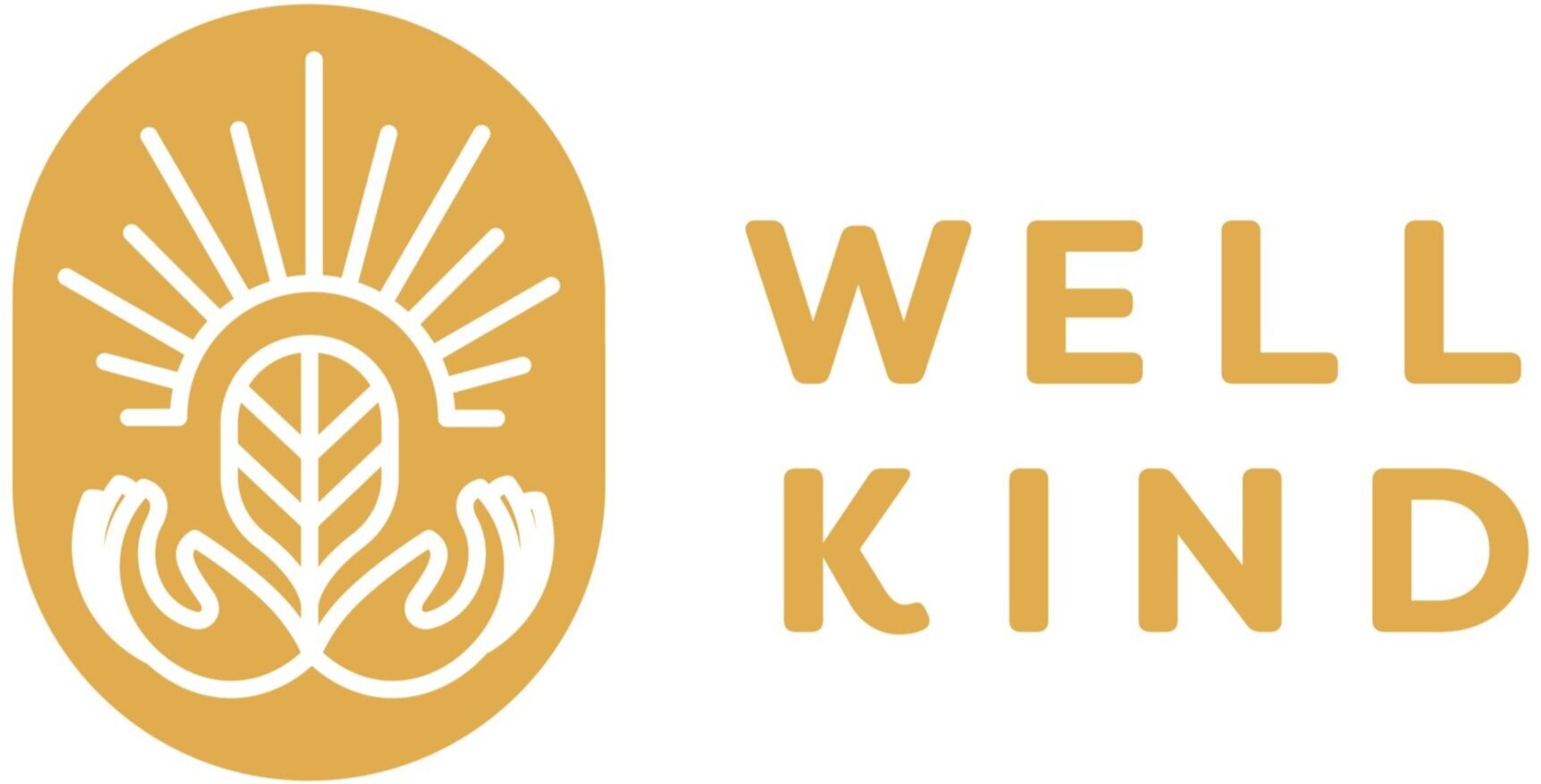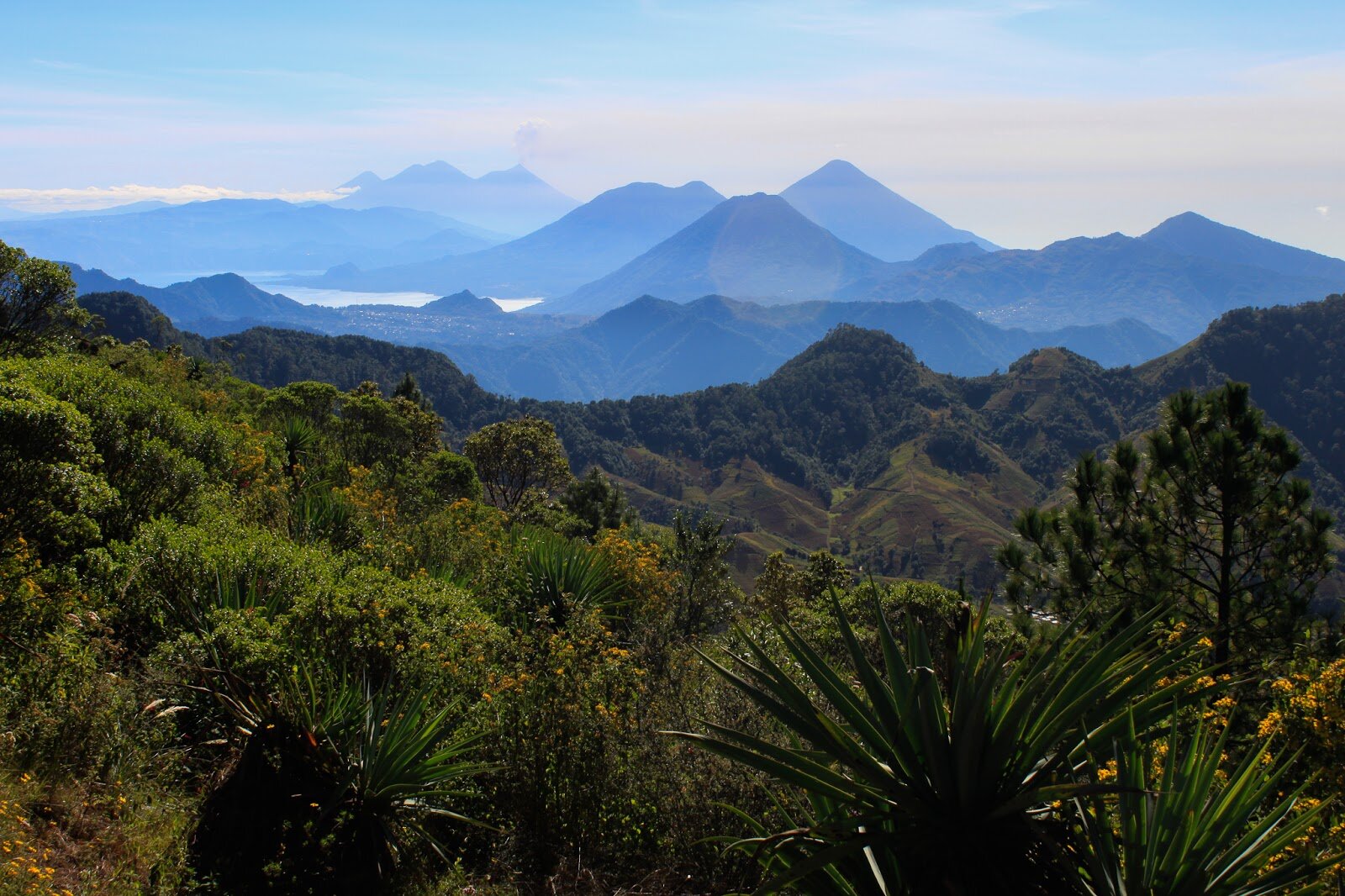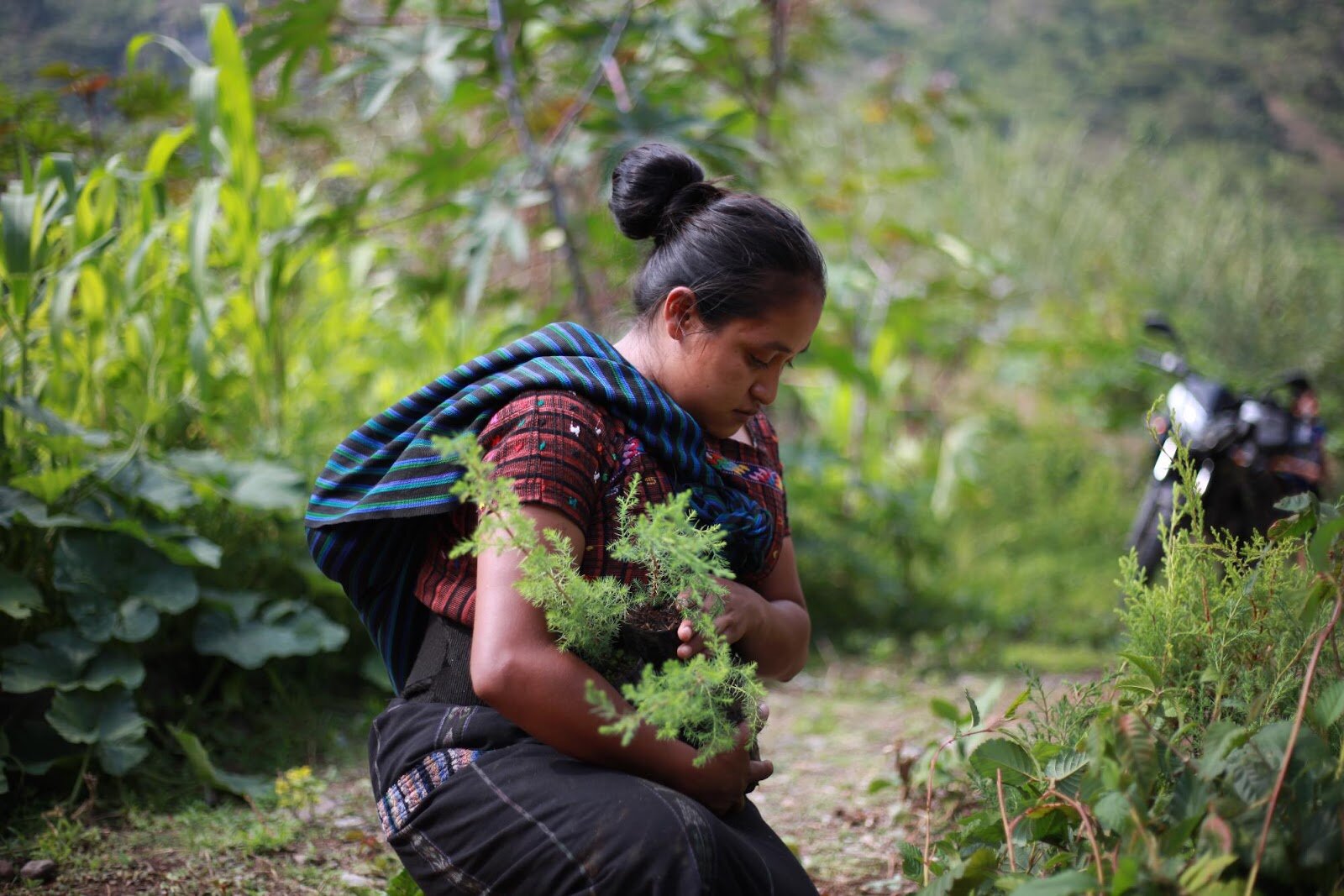Support WELLKIND's Work in Guatemala
By Kyle Weinstein
Maria Benita, One of the Community Leaders of the Orchard Project.
Since 2019, WELLKIND has worked at the intersection of personal, community, and planetary health in the indigenous village of Tzununá, Guatemala. Our artisan cooperative employs over 60 women. Our reforestation program has planted over 14,000 trees. Our environmental educational campaign has reached 100 people, and we have given 100 people scholarships to a vocational school.
This blog will give an overview of the beautiful nature, people, and culture found in Lake Atitlan, Guatemala. You’ll see who and what we’re fighting for in the indigenous community.
If you resonate with our work, now is a perfect time to offer your support. Currently, One Day’s Wages is partnering with WELLKIND Guatemala. For every donation that WELLKIND gets, it will be matched by One Day’s Wages until the end of August. To get your donations matched, visit: onedayswages-wellkind.funraise.org
Lake Atitlan, Guatemala
Guatemala is a very small country with immense biological, cultural, ethnic, geological, and natural diversity. There are 23 ethnic groups here. Twenty-one of them are of Mayan descent, and two of them, the Garifuna and Xinca, are not. Each ethnic group has a very different culture that surrounds them because of their distinct territory and surroundings. These different Mayan groups have lived here for over 3,000 years and have a deep connection to the land and its unique characteristics.
Lake Atitlan is a crater lake in the Western Highlands of Guatemala and is home to three of these ethnic groups: the Kaqchikeles, Tzutujiles, and Quiches. The Kaqchikel-speaking town of Tzununa is one of a handful of villages on the lake.
Weaving - a centuries-old tradition
Maria Tepaz Sipac is seen sitting at her backstrap loom that she has used since she was a little girl, when her mother and grandmother were teaching her. This is the method most women in Guatemala use to weave their clothing before they do embroidery on top of it. They weave stories into the things they wear and have passed down this technique from generation to generation. The traditional clothing in Guatemala dates back hundreds of years and is still a huge part of Guatemalan culture today. Maria says, “I really enjoy making all types of handicraft products whether it is weaving, embroidery or crochet. I think it is important to pass these techniques on to our children because it is the legacy of Guatemalan culture.”
Our artisan cooperative has over 60 members producing fair trade crochet products for a retailer in the USA who sells outdoor games. The women in this group have been able to earn over 50,000 Quetzales through their work in this program. WELLKIND is empowering women and giving them economic independence by creating jobs that are working towards cultural preservation. We are fortifying women's handicraft skills by offering scholarships at a trade school to learn embroidery, crochet, and other techniques. Our aim is to provide opportunity to anyone who wants to learn new skills and also be able to assure them work once they graduate from the vocational school.
Lucrecia Culum is the head of the artisan cooperative and comes from the town of San Pablo la Laguna on the lake. She says, “When we started our work in Tzununa, women only knew how to use the backstrap loom, but now they have dominated the crochet technique. These products pay more money and give the local women a way to earn from the safety and comfort of their homes. It's really special to see how many people's lives have been transformed through all the programs WELLKIND has in Tzununa.”
Maria Simaj is one of the artisans who has been in the cooperative the longest. She has made very consistent and quality work. Maria says, “I am grateful to have been given a scholarship to learn crochet because now I am able to earn more money while I take care of my family at home. Being part of the cooperative has really helped me support my household and still be present with my children. Handicrafts have always been a part of my life, but this completely revolutionized my work and I'm very grateful to WELLKIND for this opportunity.
Reforestation: Preserving nature and culture
Through WELLKIND’s reforestation program, we have planted over 14,000 native wood and fruit trees in the Tzununa valley. Our focus is to plant trees that have a cultural significance to the people and are also part of the ecosystem that belongs to the region we are in. Pictured here, Paulina Perez Yaxon takes home cypress trees to be planted on her land. She says, “I really love the smell from the leaves of this tree and its wood is very good to make furniture. Traditionally people here boil the leaves and then apply them to any wound to provide pain relief and also to steam baths with the leaves for the common cold.” WELLKIND donates trees to local families to ensure there will be a greener Tzununa right now and natural resources for the next generation.
Eleven-year-old Odilia Tepaz holds a kushin tree that she is taking home to her family's land in the mountains of the Tzununa Valley. This type of tree has edible fruit, and it produces very good nectar for the production of honey. The fruit is a local delicacy. The kushin tree also fixes nitrogen in the soil, making it an ideal tree to put in between crops, specifically coffee. Odilia says, “This is one of my favorite fruits and I always look forward to the kushin season because they taste like ice cream.”
How to Support WELLKIND Guatemala
Your donations help us continue our work and carry out our programs to benefit the people of Aldea Tzununa in Guatemala. None of this would be possible without your help and generosity.
To get your donations matched, visit: onedayswages-wellkind.funraise.org








